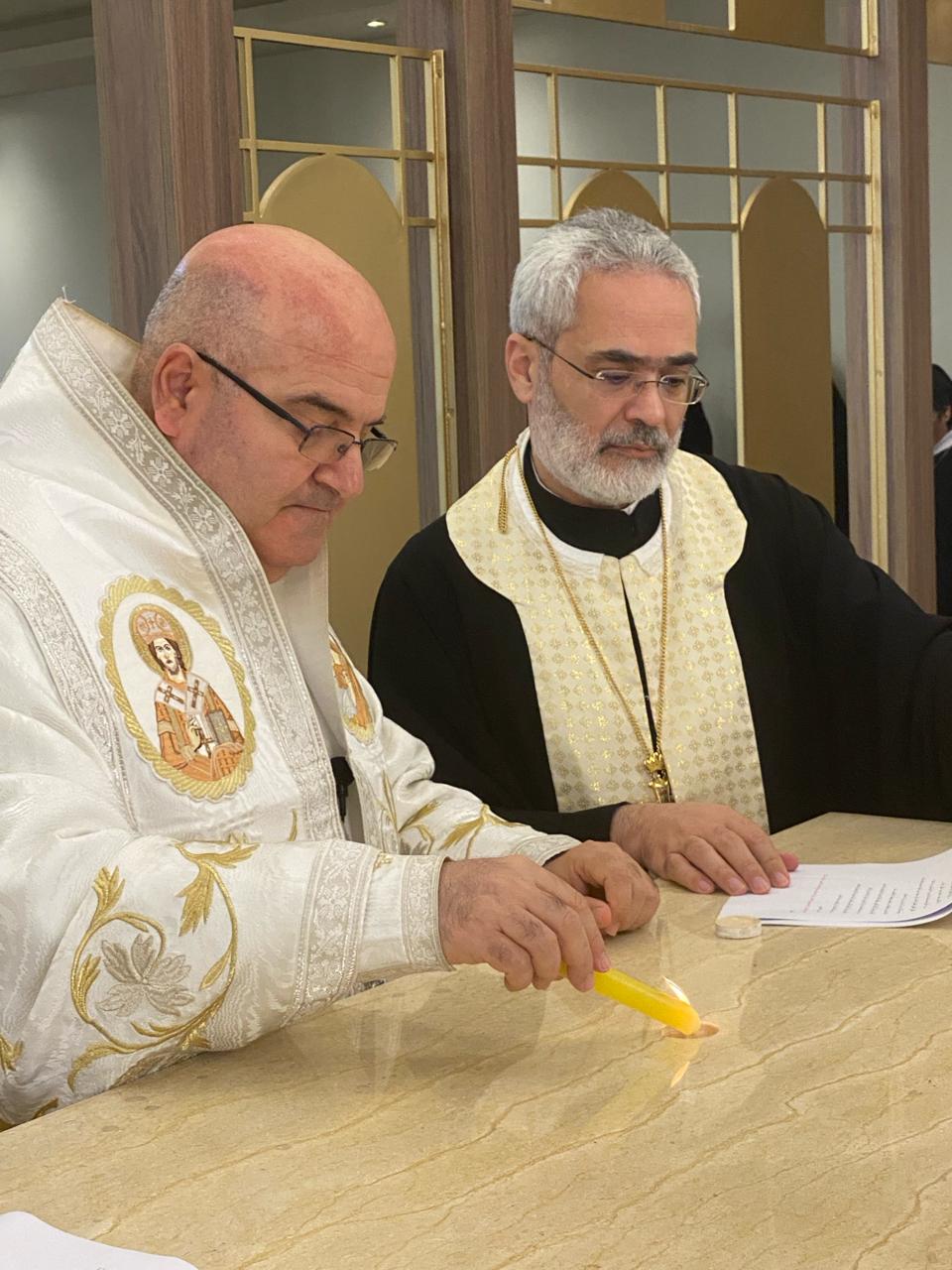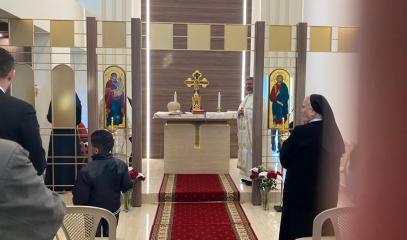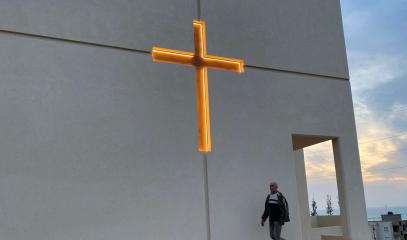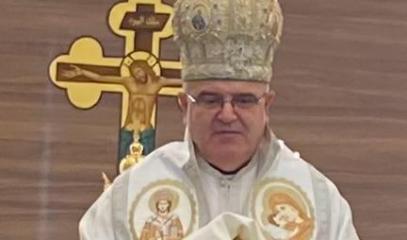Beirut: Saint Nicholas of Flüe 'man of peace and mediator' between wars and divisions
The first chapel dedicated to the patron saint of the Swiss Confederation and his wife Dorothea was inaugurated over the weekend in the south of the capital. It is located in the convent of Notre-Dame de la Plaine, a retirement home belonging to the Greek Melkites. A 15th century hermit, he saved his homeland from civil war and instilled in it the founding value: neutrality.
Beirut (AsiaNews) - The Christians of Lebanon do not live to the rhythm of their liturgical year. Other calendars and other facts mark their daily lives: the war in Gaza, the Israeli bombings in the country, the void linked to the presidential election, a position that has been vacant for some time now, the waltz of labels on the shelves of food banks, and more.
It is in this climate of profound difficulty that the Catholic Churches experience the Easter season and the Greek-Melkite (Catholic) Church in Lebanon, in particular, inaugurated a new chapel dedicated to it last March 23rd in Damour (south of Beirut) to Saint Nicholas of Flüe (1417-1487), patron saint of the Swiss Confederation, and to his wife Dorothea.
The new chapel is located in one of the corners of the large façade of the convent of Notre-Dame de la Plaine, a retirement home for the elderly managed by the Greek-Catholic congregation of the missionaries of the Annunciation.
The inaugural mass was celebrated by Msgr. Georges Bacouni, archbishop of Beirut of the Greek-Melkites, in the presence of a small crowd of faithful including Christine Thomi, representing the Solidarité Liban-Suisse association, who ensured its completion and inspired the dedication.
A man of peace and an extraordinary mediator, this 15th century hermit saved his homeland from civil war and was able to instill in it its founding value, neutrality. Having become a hermit, with the consent of his wife, his "dear Dorothea" as he called her throughout her life, "Frère Nicolas" spent the next 17 years of his life in fasting and prayer.
This giant of holiness is adulated and revered in his country (Switzerland) as Saint Charbel is for us, in Lebanon. And this is also why the Solidarité Liban-Suisse association places great hope in the twinning of the sanctities of the two men.
Damour's name, moreover, is associated with one of the inaugural dramas - and bloodiest events - of the Lebanese war (1975-1990).
In January 1976, a massacre took place in that area, the consequences of which continue to this day: around 500 civilians lost their lives here, shot at point blank range and killed by armed Palestinians. The rest of the population was evacuated at the last minute, by sea, to the Christian areas of Beirut.
Half a century later, between 3 and 4 thousand families originally from Damour have resettled in the area. According to Béchara el-Khoury, an elected member of the local municipal council, this is "about a third of the inhabitants of the urban agglomeration". “The war has gone on for too long and, no longer able to return to their homes, many have settled elsewhere” adds the city councilor, who also deplores the fact that no development project has been undertaken, effectively rendering the town “a dead land”. It should also be noted that a "dormant" Palestinian military base is still inexplicably located in Naamé, a few kilometers from Damour.
The convent of Notre-Dame de la Plaine is built on the first bare hills above the town, at its southern end. It is a large building, of which some wings are still awaiting the necessary funds to be completed. Furthermore, the complex, which could house a physiotherapy center and clinics in the future, is built on land donated by Asma Goraieb and financed by philanthropists and community benefactors.
For the occasion, the faithful and religious present, including Thérèse Roukoz, superior of the Congrégation des Soeurs Basiliennes Salvatoriennes N. D. De l'Annonciation, surrounded by about forty nuns and some monks, attended an unusual liturgy that day: the dedication of the altar. The ceremony had all the characteristics of a "baptism", explained the bishop.
It included: washing the surface; the anointing of the four sides with holy oil; the insertion of a relic into a cavity on the surface; sealing with candle wax; the altar equipment with two tablecloths and a serrated outline; the installation of the Cross.
In the homily Msgr. Bacouni recalled that before 1975 Damour included a Greek-Catholic parish and a church, still in ruins today, indirectly confirming the city councilor's words regarding a still unfinished and unresolved war. And why? Because "this region does not belong to us" assures a deputy, on condition of anonymity. But what does a region that "belongs" to Christians mean? A region in which they are in the majority and in which they hold decision-making power. But is the Church just this? Isn't it also the "good yeast" that makes the entire society grow and develop thanks to its code of conduct, its faith in Christ and its benevolence?
The Archbishop of Beirut underlined this with his characteristic familiarity of tone, when he focused his homily on the Letter of Saint Paul, in which the apostle exhorts the faithful "not to be anxious", but to present all their supplications to God "with thanksgiving".
In other words, thanking God in advance for the graces that he is about to grant and showing the world a serene and joyful face, rather than a closed and sulky one.
The archbishop's speech will finally be followed by a short speech by Christine Thomi, delegated by his association to participate in the ceremony. We learned that this is the first altar in Lebanon dedicated to Saint Nicholas of Flüe, and probably the first in the world dedicated to him and Dorothea. Could this not be the sign of life and renewal expected by the city's mayor? It is hidden in a convent in Damour as a discreet promise of resurrection for a parish decimated by the war, but of which remains a strain of sanctity from which everything will flourish again.
12/02/2016 15:14










.png)










